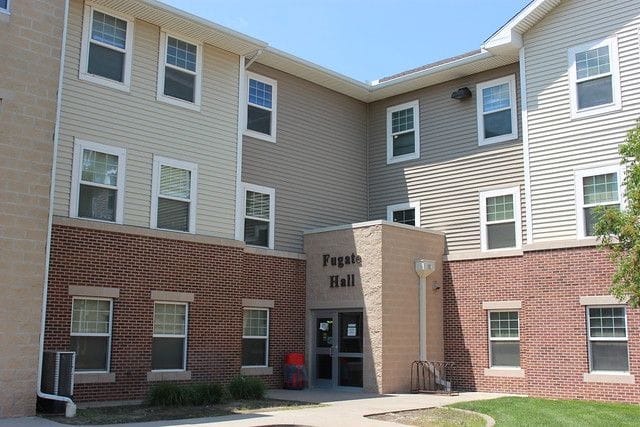By Victor Dixon, Editor-in-Chief
Newman students living in the residence halls this year have been hearing stories about dorm parties being broken up and the party throwers being fined.
But the number of such incidents is actually on a downward trend, said Residence Life Director Ian Lecki.
Prior to 2023, when Lecki assumed his role as director, issuing fines was not a common practice, he said. Though the policy surrounding disciplinary fines is outlined in the resident handbook that students living on campus are given, in years past, it often was not actually enforced.
The primary focus of the fines, Lecki said, is to correct bad habits and encourage growth and maturity in the student resident population by introducing what may be an annoying consequence for behaviors like frequently losing keys, being the subject of a noise complaint, or underage drinking.
Approximately 70 total fines have been issued this school year, which includes key and prox card replacements, and about 20 this semester, Lecki said.
According to the Residence Life Handbook, fines can be as low as $10 in the case of a lost prox card or as high as $300 for improperly following outlined dorm check-out procedures. But ultimately, the amount charged for a disciplinary action is up to the discretion of the residence life department.
“Living in the dorms is a privilege, it’s not a right,” Lecki said. “I want everybody safe. I also want everybody else who’s paying the large amount to live in the dorms to feel respected.”
When students are fined for losing keys or prox cards, the fines cover the cost of replacing those items, Lecki said. They also serve as a deterrent to students who may be tempted to share keys or cards with non-residents or people unaffiliated with Newman, which can be a potential threat to safety.
Lecki emphasizes safety as the main priority to his team of Resident Assistants and Residence Hall Assistants, which includes Beth Griffiths, a senior who has been an RA in Beata for the past year.
“Ultimately, the safety and the background work that gets done is a lot more of our job than anything else,” Griffiths said.
Any further money from fines go into the residence life event budget, which is used to put on events and provide snacks and drinks.
Although students may be fined for breaking dorm rules about partying or drinking, Lecki said he usually waives such fines on the first offense and makes growth and active discussion a priority. However, since safety is his first priority, the fines for second offenses will be double the original amount, in accordance with the handbook.
“We prioritize growth, so the fines are not the most important thing for me,” Lecki said. “But if things kind of start to reoccur and we don’t seem to really be learning, then sometimes money talks.”
PHOTO: Courtesy, Newman Advancement
